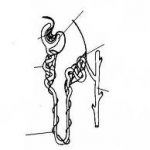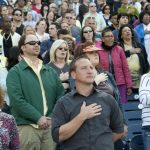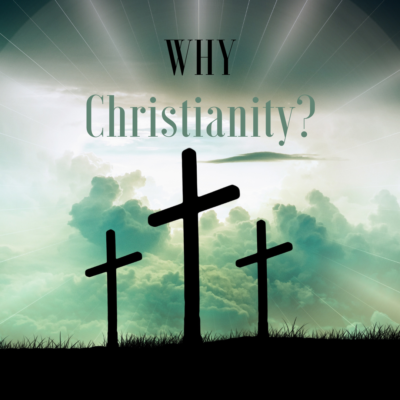
by Suellen | The Church Awakening
 So what is a nephron? A kidney cell. Strange, huh? What kind of spiritual lessons could we learn from the kidney cell? The answer: lots.
So what is a nephron? A kidney cell. Strange, huh? What kind of spiritual lessons could we learn from the kidney cell? The answer: lots.
I have found – as I’m sure that you have- that God teaches us by what we already know. In other words, if we are farmers, he’ll teach us lessons using the soil, the seed, planting,etc. If we are fishermen, he’ll use that imagery to show us other important concepts. O.K., so why the nephron?
A few years ago, I was a pharmaceutical sales representative in the Atlanta area. Part of my training was a “crash course” in pharmacology presented by the Medical College of Philadelphia, and since one of our drugs was a diuretic, I had a “crash course” in the kidney and its function. I was absolutely amazed with this important organ.
Years later, after I had left the job, and my husband and I were preparing for ministry, I had a very unusual day with the Lord. He reminded me of the nephron, the kidney cell, and He began to speak to me all day relating the concepts with His church.
The kidney is made up of very specialized cells called nephrons. Each kidney has between 800,000 and 1.5 million of these cells, which are so small that they cannot be seen with the naked eye. If you go to Wikipedia, you can learn more about these, but I want to concentrate here on the spiritual concepts.
The kidney has many functions which are life and death matters for our bodies. Every ounce of blood in our bodies, goes through the kidney every day to be cleansed and regulated. Waste products are removed, and electrolytes are balanced so that our other organs can function properly.
I had always thought of the kidney as functioning as a whole. I had thought that the organ worked like a muscle, to perform all of its functions. But no. That’s not the case. All of the functions which are done by the kidney are done on the cellular level. What do I mean? I mean that each nephron, so small that we cannot see it, removes waste, regulates, sodium, potassium, and other ions, regulates blood pressure, etc. In fact, as blood passes through the nephron, certain places on the cell perform each of the tasks. Everything is very specialized.
So what are the lessons? As a body of Christ, we think of all of our work as occurring by the whole. We think sometimes that while we are in church we are accomplishing all that God wants. But this is not the case. The true work of the church is accomplished by each cell – each person – as they are performing their function in the world. They may be so small that no one even sees them, just as the nephron, but their work is important. In fact, the very life of the body depends on the work of all of these no-name, faceless members of His body.
So often, we gather and have wonderful meetings and feel so revved up and energized for the Lord. But if we are truly the Body of Christ, we need to go out and perform our function. That’s really the only way anything gets done. God is a one-on-one God. Whether we are going to change our churches or change our communities, everything is personal. Even when we talk about “taking mountains,” the culture only gets changed by individuals turning to the Lord and changing their mindsets.
But there’s more. Even though the work of the kidney – or the ministry- is done on a cellular level, by each one doing his part, if you cut some of the cells away from the kidney, they will die. Even though they do the work themselves, they depend on the blood flow from the kidney as a whole to survive. They don’t work or even survive alone.
So is the Body of Christ. Though the work of the ministry is done by each individual doing his part, that individual needs the corporate anointing, as the church comes together, to fulfill his call. The anointing, the teaching, the sharing,and the “iron sharpening iron” that goes on as the church meets as a whole, are absolutely essential for each member to thrive in his calling.
We need each other, but each one is important. I believe that in this time in history, we are going to see individuals rising to their place like never before. We will come together; then we will go out. We will be refreshed and energized by the anointing and by the words; then we will go out into the world, carrying the torch of awakening. We know our significance – and we see the significance of those around us. We are all important.
After all, together, we make up the Body of Christ, and we have an important work to do for Him.
Let’s do it!

by Suellen | The Church Awakening
 How do you define a Christian? We all have our preconceived ideas. Of course they have to believe in Jesus Christ and receive Him as their Lord and Savior. That goes every time. But what about the rest?
How do you define a Christian? We all have our preconceived ideas. Of course they have to believe in Jesus Christ and receive Him as their Lord and Savior. That goes every time. But what about the rest?
In our society we have images which pop into our heads. We might imagine a man in a suit and tie and a woman in her heels. (Or if you run in the circles I do, you imagine a man not in a suit and tie, and a woman in pants or jeans). In either case, we think of dedicated church goers, with Bibles in hand, leading in prayer, having solid families. Usually they are leaders in the community.
But is that all? Is everyone that way? What about Mark?
Mark is a man who is now in his seventies and had never been in a church until about four years ago, when he came and prayed to receive Jesus. His wife passed away much earlier, and he was very lonely. He lives in a small mobile home at the edge of the town with his grandson, whom he raised. (Now the young man is in his mid twenties, but he doesn’t work and counts on his grandfather for support).
Mark is a quiet man, but every now and then he’ll tell a story which gives us a glimpse of his life.There is a reason that he never learned to read. When he was in the second grade, his father took him out of school so that he could help with the farm chores. (They were sharecroppers). He worked hard, long hours on the farm. But that’s not all that he did.
His grandfather was a moonshiner. He had a still back in the woods, and when the old man had an order, he would have Mark travel by foot to deliver the brew. It was risky, so the young boy learned how to look out for the “law.” On occasion he might have to duck into the edge of the woods, so as not to be seen. This grandfather was a hard man. If the young lad didn’t make it back in time for dinner, he wouldn’t get his food. Food was served twice a day, and anyone not around for the meal would have to wait until the next one.
Mark later got married, had children, and raised a family. Over the years, his farming and moonshining gave way to factory work. He worked at a local plant, running machines, and doing janitorial work. His attendance record was almost perfect. One of his greatest possessions was a jacket which he earned as “Employee Of The Year.”
Mark told me that while his wife was alive they would “fuss a lot.” He feels bad about that. He says that “he didn’t always do what he should have done.”He’s glad that he can pray and that Jesus has forgiven him.
He has been retired a few years, but Mark still does odd jobs. And he walks. He walks several miles a day – sometimes to the store, to a working assignment, and sometimes to church. He loves to work and he loves to walk. It makes him feel better.
Mark doesn’t bring a Bible to church, since he can’t read it. But every Sunday, for the last few years, he has sat on the front row on the far right of the church. And every Sunday, he has listened attentively as sermons were preached or testimonies given. His heart is tender, as he kneels and prays at the altar. He wants to “keep things right with God.”
We need to broaden our perspective. We need to realize that out there – in the masses of people who throng by every day, there are other Marks. They might not look like they would be interested in Jesus. And they might not act like it. Yet within their hearts is a desire to connect with their Maker and to connect with the truth. They want to know what the Bible says, and they want to learn how to pray. They might be outside of the box we expect people to be in, but they are not outside of the box in Jesus’s eyes.
I don’t know about you, but I want to look for more of the Marks. I am asking God to open my eyes and ears to see and hear what he wants to tell me so that I can reach others who are seeking the truth. I’ll try not to judge by what my natural eyes see, but I will try to judge by my spiritual eyes.
Dear Lord, help me to do this. I know how special these little ones are to you. Help me to do this.

by Suellen | Successful Living
 There are many people who say that they believe in God. They try to live clean, righteous lives. But are they God’s friend? Not all of them. What about you? Are you His friend?
There are many people who say that they believe in God. They try to live clean, righteous lives. But are they God’s friend? Not all of them. What about you? Are you His friend?
So why would someone who said they believed in God and lived a good life not be God’s friend? Well, let’s look at two men who lived long ago – probably within the same century.
One of these men ended up becoming the patriarch of the Jews, he was in the lineage of Jesus, and is often called the “Father of Faith.” He had such a close walk with God, that Jehoshaphat referred to him as “God’s friend.”(II Chron 20:7)
The other is known for his patience (James 5:11), but that’s about it. He wasn’t in the lineage of Jesus, he wasn’t ever referred to as God’s friend – and his descendants were never mentioned as followers of God.
I’m sure you know these two men I’m talking about: Abraham and Job.
So what’s the difference? There are several.
Abraham was humble in his relationship with God. As you read his story in Genesis 12-25, you never see anything but a humble man. Because of that humility, Abraham always looked to God’s grace – and not his own goodness. Thus he had great faith. On the other hand, Job was very proud. In the start of Job’s story he was a blessed man, but he depended on his own goodness to keep his blessings. Instead of humbly trusting in God, he was always performing sacrifices to God just in case his children had done something wrong.
Humility caused Abraham to have great faith, because his focus was on God. Pride caused Job to have great fear, because his focus was on his own goodness.
The bottom line was that God cut a covenant with Abraham. This was a freewill thing. Abraham was willing to leave his family and friends and go into a land he knew nothing about – just because God told him to do it. In fact, when he got to the new land, there was a famine there, and Abraham had to go to Egypt for awhile. But he stayed faithful.
Then when God promised him a son, Abraham believed God, even though he was well advanced in years. Many years transpired before the fulfillment of this promise, and Abraham made many mistakes during that time. But his faith was not in his own goodness; it was in God’s goodness. Genesis 15:6 says that “Abraham believed God, and He accounted it to him for righteousness.”
One of the keys to being in covenant with God is that we believe in God’s greatness, and not in our own. We realize that however good we get, God is still better. However smart we think we are, God is smarter. Trust in Him grows out of that attitude.
And out of that humility, faith, and trust, grows obedience. When we see in God’s word direction which may seem strange, we are willing to follow it anyway. We know Him, we trust Him, and we obey Him. For instance, when the Word says to “forgive,” even though we have been treated injustly, we humbly obey. (Pride will try to justify our unforgivenenss).
God is looking for a people who will have this kind of “friendship” with Him. People who will be humble enough to want to know Him better and want to be in covenant with Him.
Are you one of those people? Think about it. Only you can answer that question.
Forever Upward!
Suellen Estes
PS In case you are wondering why I show so many eagles in my posts. First, I believe that they are wonderful symbols of the Christian walk which causes us to soar with God. Secondly, my husband is a photographer and his specialty is eagles.

by Suellen | The Church Awakening
“When the righteous are in authority, the people rejoice.” Proverbs 29:2.
 Today is the day to make your voice be heard in our great democratic republic. Sometimes people may think that their voice doesn’t count.; it’s just one of many. But throughout history elections have been won by a few hundred votes. Remember the 2000 election? A virtual handful of votes in Florida decided the outcome. Just think if those few hundred had not voted, what would the outcome have been?
Today is the day to make your voice be heard in our great democratic republic. Sometimes people may think that their voice doesn’t count.; it’s just one of many. But throughout history elections have been won by a few hundred votes. Remember the 2000 election? A virtual handful of votes in Florida decided the outcome. Just think if those few hundred had not voted, what would the outcome have been?
I have included some great historical quotes furnished by http:www.wallbuilders.com. They will inspire you to fulfill that great public trust we have been granted.
Pray and choose well. Then vote!
John Adams
We electors have an important constitutional power placed in our hands; we have a check upon two branches of the legislature . . . the power I mean of electing at stated periods [each] branch. . . . It becomes necessary to every [citizen] then, to be in some degree a statesman, and to examine and judge for himself of the tendency of political principles and measures. Let us examine, then, with a sober, a manly . . . and a Christian spirit; let us neglect all party [loyalty] and advert to facts; let us believe no man to be infallible or impeccable in government any more than in religion; take no man’s word against evidence, nor implicitly adopt the sentiments of others who may be deceived themselves, or may be interested in deceiving us.
[John Adams, The Papers of John Adams, Robert J. Taylor, ed. (Cambridge: Belknap Press, 1977), Vol. 1, p. 81, from “‘U’ to the Boston Gazette” written on August 29, 1763.]
Samuel Adams
Let each citizen remember at the moment he is offering his vote that he is not making a present or a compliment to please an individual – or at least that he ought not so to do; but that he is executing one of the most solemn trusts in human society for which he is accountable to God and his country.
[Samuel Adams, The Writings of Samuel Adams, Harry Alonzo Cushing, editor (New York: G.P. Putnam’s Sons, 1907), Vol. IV, p. 256, in the Boston Gazette on April 16, 1781.]
Nothing is more essential to the establishment of manners in a State than that all persons employed in places of power and trust be men of unexceptionable characters. The public cannot be too curious concerning the character of public men.
[Samuel Adams, The Writings of Samuel Adams, Harry Alonzo Cushing, editor (New York: G.P. Putnam’s Sons, 1907), Vol. III, p. 236-237, to James Warren on November 4, 1775.]
Matthias Burnett
Consider well the important trust . . . which God . . . [has] put into your hands. . . . To God and posterity you are accountable for [your rights and your rulers]. . . . Let not your children have reason to curse you for giving up those rights and prostrating those institutions which your fathers delivered to you. . . . [L]ook well to the characters and qualifications of those you elect and raise to office and places of trust. . . . Think not that your interests will be safe in the hands of the weak and ignorant; or faithfully managed by the impious, the dissolute and the immoral. Think not that men who acknowledge not the providence of God nor regard His laws will be uncorrupt in office, firm in defense of the righteous cause against the oppressor, or resolutly oppose the torrent of iniquity. . . . Watch over your liberties and privileges – civil and religious – with a careful eye.
[Matthias Burnett, Pastor of the First Baptist Church in Norwalk, An Election Sermon, Preached at Hartford, on the Day of the Anniversary Election, May 12, 1803 (Hartford: Printed by Hudson & Goodwin, 1803), pp. 27-28)
Forever Upward,
Suellen Estes.
![Signs Of Our Covenant]()
by Suellen | Successful Living, The Church Awakening
 In the days to come, I am going to be talking about our covenant with God through Jesus. That is something that many people either push aside or don’t understand. As Christians, we are in a “spiritual agreement” with God which opens up doors for us to live above many negative circumstances which come our way.
In the days to come, I am going to be talking about our covenant with God through Jesus. That is something that many people either push aside or don’t understand. As Christians, we are in a “spiritual agreement” with God which opens up doors for us to live above many negative circumstances which come our way.
This covenant has been compared to a will which might have been left for us. If you are a beneficiary of a will, you don’t receive the inheritance until the will is probated. If you don’t know the will is available, you might go through your life without receiving your inheritance.
Our inheritance from Jesus is much the same. If we don’t even know that we have this covenant with Him, we may go through life without ever receiving all that He paid for. So what is in our covenant? Many things, and I will be talking about these in the next posts.
To give a picture of this inheritance, I want to bring attention to a study done by a man named Richard Dugdale in 1877. His study addressed the lineage that goes with righteous heritage. There has been much discussion about the details of the study, but there are enough undisputed facts that it seems that definite conclusions can be drawn.
The first man was Jonathan Edwards, who was born October 5, 1703. At age 13, he entered Yale University and graduated with honors. Entering the ministry, Edwards was largely responsible for the Great Awakening that swept across America, uniting the colonies prior to the Revolution. His famous sermon, “Sinners in the Hands of an Angry God,” was sent across the land, bringing repentance to many. Later, Edwards became President of Princeton College.
Jonathan Edwards married Sarah Pierrepont, and according to A Study in Education and Heredity by A.E. Winship (1900), their descendants were incredible. They included:
1 U.S. Vice-President
3 U.S. Senators
3 governors
3 mayors
13 college presidents
65 professors
30 judges
80 public office holders
100 lawyers
100 missionaries.
This same study examined a family known as “Jukes.” In 1877, while visiting New York’s prisons, Richard Dugdale found inmates with 42 different last names all descending from one man, called “Max Jukes.” Born around 1720 of Dutch stock, Max was a hard drinker, idle, irreverent, and uneducated. He would spend many days not working, but drinking and fighting. Dugdale considered this man an atheist.
His descendants included
310 paupers
50 prostitutes
40 “physically wrecked by indulgent living”
7 murderers
60 thieves
130 other convicts.
The “Jukes” descendants cost the state more than $1,250,000.
Now some people will look at this and conclude that education, hard work, and good morals contributed to the stark contrast in the two families. I agree that those things contributed, but I see the source of those attributes coming from God Himself. When people honor God and His word, they will be hard working, educated, moral, – and blessed.
Now am I saying that when your family has problems you are not being blessed? Absolutely not! Everyone has problems, but as we continue in our covenant with God, we will be able to overcome the problems. And we will see God’s hand on our children and grandchildren.
It’s something to think about, isn’t it?
Forever Upward
Suellen Estes

 So what is a nephron? A kidney cell. Strange, huh? What kind of spiritual lessons could we learn from the kidney cell? The answer: lots.
So what is a nephron? A kidney cell. Strange, huh? What kind of spiritual lessons could we learn from the kidney cell? The answer: lots.







